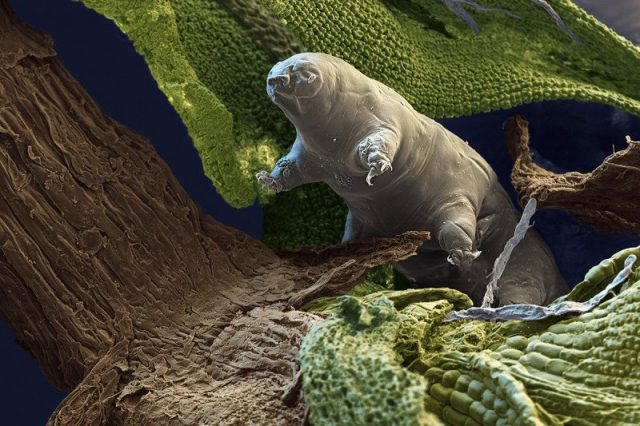MI weekly selection #243

Genetic study offers new clues about tardigrades
Tardigrades make very specific proteins that help their cells keep their shape even when there is no water present, helping explain why the tiny creatures can survive desiccation. The study also suggests that tardigrades, despite looking more like an arthropod, are closer relatives of nematodes.
Increased rainfall due to climate change could result in more water pollution
Increased precipitation caused by unchecked climate change could harm water quality. Researchers say heavier rainfall could result in an excess runoff of nitrogen, causing toxic algal blooms and low-oxygen zones.
Kepler may have found first moon outside our solar system
The Kepler Space Telescope has detected a signal that may be coming from a moon outside our solar system. The exomoon candidate, if confirmed, could be about the size of Neptune orbiting a Jupiter-sized planet and would be the first exomoon ever discovered.
Glue inspired by slugs shows promise in repairing damaged tissue
A glue inspired by slugs that adheres to wet surfaces has been developed and could be used to repair damaged tissues, including a damaged beating heart. The flexible yet tough adhesive was tested on a beating pig heart as well as other tissues and worked better than available surgical glues.
Making sunscreen with DNA
Skin care products made from DNA crystal films could provide better protection from ultraviolet rays than conventional sunscreen. Researchers found the DNA could be applied to sunscreen and moisturizers, and has the potential to effectively protect wounds.